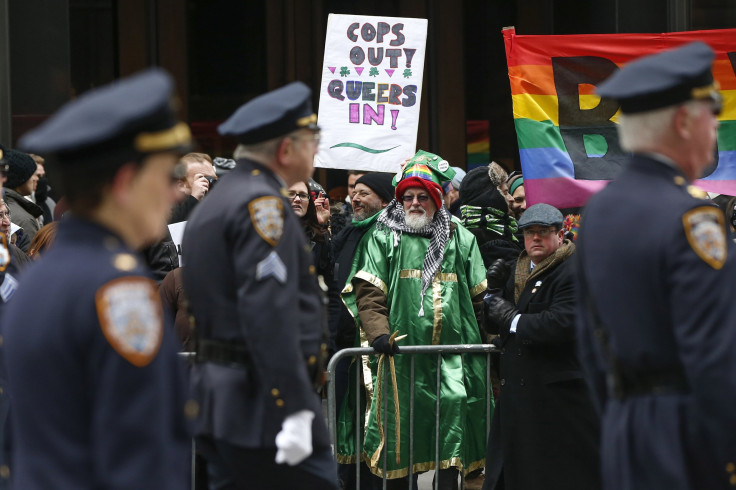LGBT Groups Can Now March In NYC St. Patrick's Day Parade, With Cardinal Timothy Dolan's Blessing

For the first time in its history of more than 250 years, the New York City St. Patrick's Day Parade, the largest in the world, will admit gay people to march under an identifying banner next March 17. Until now -- and in an echo of "don't ask, don't tell" policies – gay parade participants were allowed to march only within other vetted groups, and without their own identifying banner.
Next year, Out@NBC Universal, a group of LGBT employees of the TV network, will be marching in the parade on Fifth Avenue to continue a tradition that dates back to 1762.
The surprising news comes after both political and economic pressure. This year, Mayor Bill de Blasio refused to march in the parade because of the ban, and Guinness beer dropped its sponsorship. According to an AP report, de Blasio had threatened to repeat his boycott of the 2014 parade next year, while employees of NBC Universal pressured organizers to make the parade inclusive of LGBT participants.
In the parade committee's public announcement, they stated that their "change of tone and expanded inclusiveness is a gesture of goodwill to the LGBT community in our continuing effort to preserve the parade above politics." Cardinal Timothy Dolan, who will be grand marshal next year, gave his support to the decision. "I know that there are thousands and thousands of gay men and women marching in this parade," he stated. "And I am glad they are."
The sentiment is a departure from the defiance exhibited last year by groups such as the Catholic League, whose president Bill Donohue responded to de Blasio's absence by saying he was "delighted" with the mayor's decision. "I do not want to march with a public official," said Donohue, "who does not want to be associated with Irish Catholics."
Spokesman Bill O'Reilly said that other gay groups can apply to march in the parade in the future.
© Copyright IBTimes 2025. All rights reserved.






















